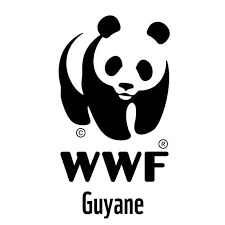May 15 ,2021

The World Wildlife Fund-Guianas has called for a full environmental and social impact assessment of oil and gas development here amid growing concerns that business interests are putting this country’s low carbon ambitions at risk and despoiling key habitats such as mangroves.
A statement from the WWF-Guianas follows:
GEORGETOWN, GUYANA, May 14, 2021. Having taken note of the recent controversies surrounding the clearing of mangroves along the West Bank of the Demerara river, WWF-Guianas reiterates its call for a full environmental and social assessment of the growing oil and gas sector, granted that the strategic decision has been made regarding its development.
Such an assessment will give decision-makers and the public-at-large an objective view of the range of impacts from the industry, that has already begun to transform the country. Environmental and Social Impact assessments, done at a project, sector or policy level provide a strong and objective means to help stakeholders to better understand issues that will affect them, their communities and the environment to which they are connected. It engenders the sharing and objective debate and can lead to the co-creation of long lasting and sustainable solutions that are less costly and less conflicting. Given the issues involved, this assessment should be done at the strategic and sectoral level.
We call for such an assessment at a time when some developers in the oil and gas industry are demonstrating low interest in keeping to their promises and acting in good faith at the very least, and at times, even flouting the nation’s laws. In the case of the mangrove clearing, the developer seems to have cleared more mangrove forest than was in the proposed plan used in its application for an environmental permit. Why mangroves should be protected is obvious, and their destruction must not be accepted without great deliberation as to the costs versus benefits to society. Mangroves protect the coastline and riverbanks in Guyana, connecting saltwater from the ocean to the freshwater produced by rivers. They play an important role in supporting Guyana’s rich biodiversity, as they feature complex ecosystems where aquatic wildlife, coastal birds and other animals thrive. An added value of these amazing forest ecosystems is their climate protection and mitigation benefits. They provide protection to coastal and riverain communities from erosion, flooding, and rising levels of the oceans, and they are known for their exceedingly high carbon storage potential that rivals terrestrial forests. For many communities, mangrove forests are also a key source of their livelihoods.
But beyond the specific issue of mangroves and shore base development, the full development programme for offshore oil and gas production is yet to be known, and as such it is difficult to anticipate and plan ahead for these impacts. While a few may have a grasp of the issues, the average person has little chance to engage on most of these issues in a fact-based or rational manner. The reality is that the oil and gas sector will cause double-figure GDP growth over the next few years, starting from a growth rate of 43.5% in 2020 according to CARICOM. However, Guyana faces the reputational risk over the perception that it is forsaking a low-carbon and sustainable future through the way it is embracing the oil and gas industry. And there is the reality.
